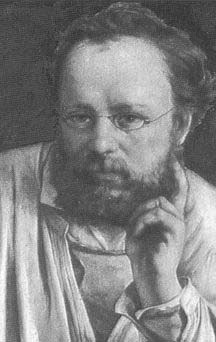| Against Authority | page 52 |
|
Proudhon's use of irony and "contradiction" in his writings, while perhaps stylish in his day, make his writings opaque to modern readers, and probably to readers of his day. Thus, there are two interpretations of his political thought. Socialists claim Proudhon as one of their own, and that he opposed property, except in some limited sense. Propertarians point to his assertion that property is liberty and a bulwark against the state, and see Proudhon as an individualist. At any rate, Proudhon was ambiguous enough so that he is claimed by both collectivists and individualists as one of their own.
Proudhon was quite clear that association for its own sake was to be avoided; he was an ardent anti-communist. He is generally considered the founder of anarchist mutualism, though this is a mistake since Josiah Warren got there first. But there's no doubt that Proudhon was a brilliant theorist, and did more to popularize mutualism than Warren or anyone else in his time. His work was responsible for igniting the anarchist movement, which soon spread from Europe to the rest of the world. Warren's work would perhaps have been relegated to obscurity had not Proudhon brought anarchism to the forefront of radical thought. Proudhon was the first writer to actually call himself an anarchist; before Proudhon "anarchist" was a term of derision. Proudhon's usage changed the meaning of "anarchism" from chaos and anomy to a radical philosophy of liberty.

Pierre Proudhon (1809-1865)